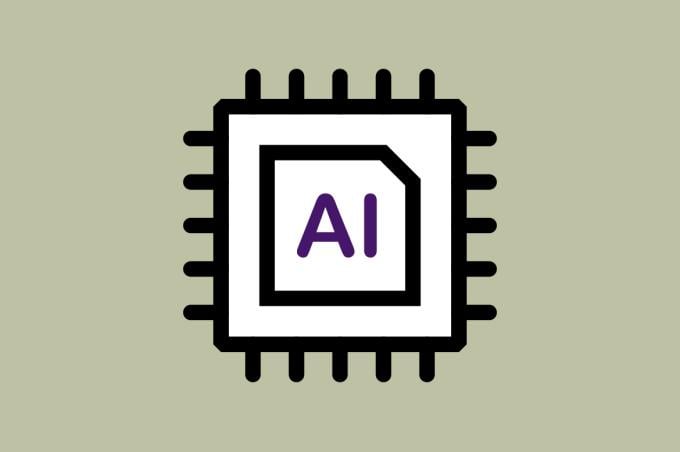The use of augmented intelligence (AI)—often called artificial intelligence—in health care is rapidly evolving. Health systems across the country are working to find uses for this technology that legitimately and sustainably support better patient outcomes, while also relieving physician burdens. But that all must happen without lessening quality of care, which is among many concerns with AI (PDF).
Nearly 90% of health system executives have said that digital and AI transformation is a high or top priority for their organization. Yet 75% reported that their organizations are not able to deliver on that priority, with 51% noting budget constraints as a key obstacle to investing at scale.
From AI implementation to EHR adoption and usability, the AMA is making technology work for physicians, ensuring that it is an asset to doctors—not a burden.
The AMA has also developed new advocacy principles that build on current AI policy. These new principles (PDF) address the development, deployment and use of health care AI, with particular emphasis on:
- Health care AI oversight.
- When and what to disclose to advance AI transparency.
- Generative AI policies and governance.
- Physician liability for use of AI-enabled technologies.
- AI data privacy and cybersecurity.
- Payer use of AI and automated decision-making systems.
Here is a list of how members of the AMA Health System Program—which provides enterprise solutions to equip leadership, physicians and care teams with resources to help drive the future of medicine—are finding answers to the wide and far reaching questions about how best to use AI for health care.
Atlantic Health System is bringing patient autonomy to the AI forefront
- While use cases for AI are increasing and overall use is growing, experts say the growth and adoption of AI could stall if physicians aren’t told what the technology is doing and how it’s doing it or if they are unable to explain these functions to their patients. Find out how Atlantic Health is supporting patient autonomy by maintaining informed consent, offering an option whether to receive AI-enabled care or not, and working towards leveraging AI solutions.
Baptist Health applies value-based care principles to AI integration
- The integration of AI within value-based care aims to enhance diagnostic accuracy, optimize treatment plans and streamline operations, ultimately improving the quality of care while reducing expenses. But despite its potential, the adoption of AI within health care faces some hurdles that can delay use within value-based care. Read more about Baptist Health’s efforts to get buy in from physicians, integrate AI into workflows and address costs.
Geisinger gets more patient-focused time with help from AI
- By harnessing the power of health care AI, physicians and other health professionals at Geisinger can streamline processes, optimize workflows and ultimately reclaim valuable hours in the day. Since 2019, Geisinger has saved almost 500,000 hours through automation and “every day we’re working on new stuff to continue saving time,” said Emily Fry, MHA, vice president of innovation for the Steele Institute for Health Innovation at Geisinger. Learn more about how Geisinger has put AI to use with appropriate timesaving tasks.
Henry Ford Health is using AI for adaptive radiotherapy for cancer care
- Kill the cancerous tissue with radiation therapy and leave the healthy tissue untouched. Save the patient while sparing them as much as possible from treatment side effects. These are simple oncologic goals but executing them can be made difficult because the patient's picture—the literal position of their anatomy—can change daily. That is where technology guided by AI and supervised by physicians and other clinicians at Henry Ford Health can help ease the burdens on patients and give them some precious time back to lead their lives. Find out more about how Henry Ford Health is applying AI in oncology.
Mid-Atlantic Permanente Medical Group is educating patients on AI use
- With the rise of tools powered by AI, accessing medical information has never been easier, or more overwhelming. As helpful as these tools can be, the results can sometimes lead to confusion, misinterpretation or even anxiety. That is why it is important to understand how to navigate health information online when searches are powered by AI. Discover what a physician from Mid-Atlantic Permanente Medical Group wishes patients knew about using AI for health tips.
Ochsner uses AI to help doctors clear EHR inboxes
- With so many patient messages coming into a portal, it’s possible to miss important details, especially if a message is long and convoluted. But by using AI as a tool, physicians get an assist in message analysis. "AI can help humans read messages more closely by highlighting essential pieces of information that are important for the doctor to review,” said Jason Hill, MD, MS, clinical innovation officer for Ochsner Health in New Orleans. Learn more about how Ochsner Health has integrated AI for useful tasks.
The Permanente Medical Group is saving doctors an hour a day with AI scribes
- When a health system rolls out new technology that it insists will make physicians’ lives easier, the announcement is typically met with skepticism. But the use of AI has changed that. The Permanente Medical Group’s rollout of ambient AI scribes to reduce documentation burdens has been deemed a success, saving most of the physicians using it an average of one hour a day at the keyboard. Read on to see how The Permanente Medical Group developed a comprehensive system to implement AI services.
Explore more with JAMA+ AI, which offers scientific content, educational reviews and commentary on AI and medicine published across JAMA®, JAMA Network Open and the JAMA specialty journals.




